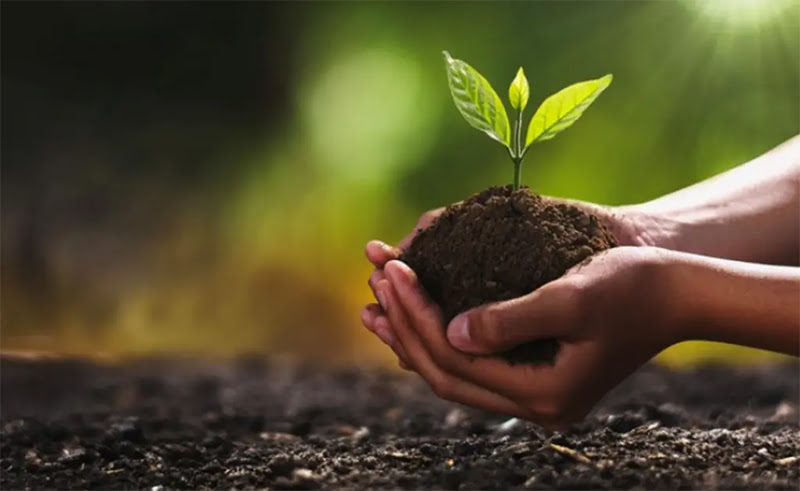We get 80% of our food, 98 percent of our oxygen, and the fibers for our clothes and other items of daily living from plants. They give asylum to endless birds and other living creatures. However, according to the International Plant Protection Convention (IPPC), diseases and pests cause damage to 40% of food crops annually. Environmental change is additionally unfavorably affecting plants. Rustic agrarian networks are the most impacted by this food security issue. Keeping up with or guaranteeing great wellbeing of plants is crucial for the endurance of humanity and other life. International Day of Plant Health is commended internationally on May 12 to feature these very realities. Beneath, we will take a gander at the subject, history and meaning of the day, and offer significant statements.
International Day of Plant Health 2025
Plants are fundamental for life on The planet. They give us food, oxygen, and asylum. They likewise assume a fundamental part in the climate, assisting with controlling the environment and forestall soil disintegration. Be that as it may, plants are additionally defenseless against vermin and illnesses. These can make huge harm crops, prompting food deficiencies and monetary misfortunes. They can likewise adversely affect the climate. International Day of Plant Health is a chance to become familiar with plant health and the dangers it faces.
International Day of Plant Healt: Themes
The topic of the current year’s festival of International Day of Plant Health is “Plant Health for Environmental Protection,” as referenced on the IPPC site. The International Plant Pest Control (IPPC) is a multilateral treaty that was signed in 1951 and is overseen by the Food and Agriculture Organization of the United Nations (FAO). It outlines strategies for preventing and controlling the introduction and spread of pests of plants and plant products. Phytopathologists are researchers who study plant illnesses – how they spread, and their impact on plant health. This field of study has made a significant contribution to the comprehension of plant diseases and the development of numerous treatments and preventative measures.
International Day of Plant Health: History
International Day of Plant Health was laid out in by the Unified Countries. Zambia pushed for the idea, which the United Nations General Assembly unanimously approved. Bolivia, Finland, Pakistan, the Philippines, and Tanzania were co-signatories to the goal. The day is considered a “key tradition of the International Year of Plant Health.” The International Day of Plant Health is commended to raise worldwide mindfulness on the importance of plant health to guaranteeing food security, safeguarding the climate and biodiversity and working with safe exchange. Taken on at the UN General Gathering, the Day is set apart in different nations all over the planet through public missions.
International Day of Plant Health: Significance
According to the UN goal taken, International Day of Plant Health is fundamental to the economical improvement of horticulture expected to take care of a developing worldwide populace by 2050. International Day of Plant Health helps raise worldwide familiarity with this issue so neediness can be diminished, appetite can end, and monetary advancement can be enganced, while safeguarding biodiversity too. Global norms for phytosanitary measures (ISPMs) in exchange likewise assist with forestalling the presentation and spread of plant bothers across borders. This exceptional day is the chance for the entire Plant Health people group to show how fundamental plants are to any remaining living organic entities on The planet. Many services are provided by plants, including oxygen, food, and shelter. Safeguarding plant wellbeing is likewise safeguarding creature and human wellbeing. We can all have an impact in this and praise consistently ‘Plant Wellbeing’.
Plants are Life
we rely upon them for 80% of the food we eat and 98 percent of the oxygen we relax. Be that as it may, global travel and exchange have been related with the presentation and spread of plant pests. Obtrusive irritation species are one of the fundamental drivers of biodiversity misfortune and undermine the fragile trap of life that supports our planet. Vermin and illnesses have additionally been related with increasing temperatures which make new specialties for bugs to populate and spread. Accordingly, the utilization of pesticides could increment, which hurts pollinators, regular irritation foes and living beings significant for a sound climate. Protecting plant health is fundamental by advancing harmless to the ecosystem practices like incorporated bug the board.
Plant Health, Safe Trade & Digital Technology
Every year, more than 240 million compartments move between nations, conveying merchandise including plant items, presenting biosecurity gambles. Furthermore, around 80% of global exchange transfers incorporate wood bundling material, giving a pathway to bug transmission. Thus, harms from obtrusive bug species cause worldwide financial misfortunes of around USD 220 billion every year. Protecting plant health across borders is fundamental by advancing worldwide joint effort and global guidelines, like the Global Norms for Phytosanitary Measures (ISPMs). Inventive arrangements like electronic phytosanitary affirmation (ePhyto) smooth out the interaction, making exchange speedier and safer.
Final Words
Celebrate International Day of Plant Health on May 12 and join the global effort to protect plants, harvests, and trees from irritations and infections. This day was first made by the Unified Countries to bring issues to light about the significance of protect plants for our future wellbeing and prosperity. Observe Worldwide Day of Plant Wellbeing on May 12 and join the worldwide work to protect plants, yields, and trees from bugs and infections. This day was first made by the Unified Countries to bring issues to light about the significance of protect plants for our future wellbeing and prosperity. We as a whole need plants to give food, oxygen, and clean air; so we should cooperate to ensure that our planet is sound.
